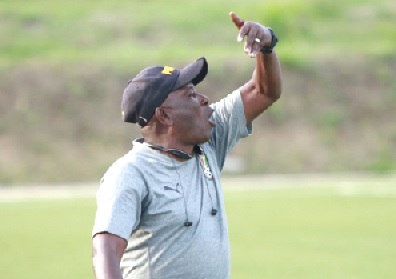Ghana’s football future is at a crossroads, and Abdul Karim Zito, the Head Coach of the national Under-19 team, has sounded the alarm.
He blamed Ghana’s struggles on the international stage on the country’s failure to maintain a structured player development system, warning that the national team would continue to falter without a proper succession plan.
The seasoned tactician, who masterminded Ghana’s triumphant 2021 U-20 Africa Cup of Nations campaign, has pinpointed the lack of continuity in player development as the Achilles’ heel crippling the nation’s football ambitions.
He has expressed frustration over the disbandment of junior teams after each tournament—a practice he believes has significantly hindered Ghanaian football’s progress and the inability of talented players who won continental titles in the age-group competitions to transition into the senior national team.
“In the past, players progressed naturally through the ranks, but today, we dismantle teams after every competition and start scouting all over again,” Zito lamented in an interview with the Graphic Sports.
“That’s our biggest problem—there is no consistency. If a player features for the under-17 team, he should automatically move to the under-19 side. You don’t just discard them and begin afresh,” he said.
Zito’s frustration is profound. Despite leading the Black Satellites to continental glory in 2021, many of those talented youngsters have failed to transition to the senior national team, the Black Stars.
The coach revealed how he promoted 12 players from the Under-17 squad to the U-20 team, a strategic move that not only secured their Africa Cup of Nations victory but also earned them a spot at the 2012 U-20 FIFA World Cup.
However, their dreams were dashed by the COVID-19 pandemic, which prevented their participation.
He also pointed to Coach Ibrahim Tanko’s decision to build the Black Meteors (U-23) squad around the core of his victorious U-20 side, a strategy that helped them impress in the Olympic qualifiers before financial constraints derailed their campaign.
The 64-year-old former Asante Kotoko coach insists Ghana must adopt a structured model similar to European football powerhouses, where national teams follow a clear progression system, allowing young players to transition seamlessly into the senior setup.
“What is troubling the Black Stars? Why are we always searching for new players?” Zito questioned. “It’s because our junior teams are not producing top talent consistently, and that’s down to poor development structures. The media also plays a role—they keep attacking coaches instead of supporting long-term growth. We focus too much on instant results, but you can’t achieve success without first laying strong foundations,” he stressed.
Zito cited the example of Coach Sellas Tetteh’s Black Satellites team, who won the 2009 U-20 FIFA World Cup before forming the backbone of the Black Stars squad that finished runners-up in the 2010 Africa Cup of Nations with the likes of Andre Ayew, Samuel Inkoom and Jonathan Mensah featuring at the 2010 FIFA World Cup in South Africa.
Turning his attention to the current Black Stars, he posed a crucial question: “How many of our senior players today actually came through the junior ranks?”
He urged the Ghana Football Association to prioritise a clear succession plan, ensuring a steady pipeline of talent to restore the country’s footballing dominance.

